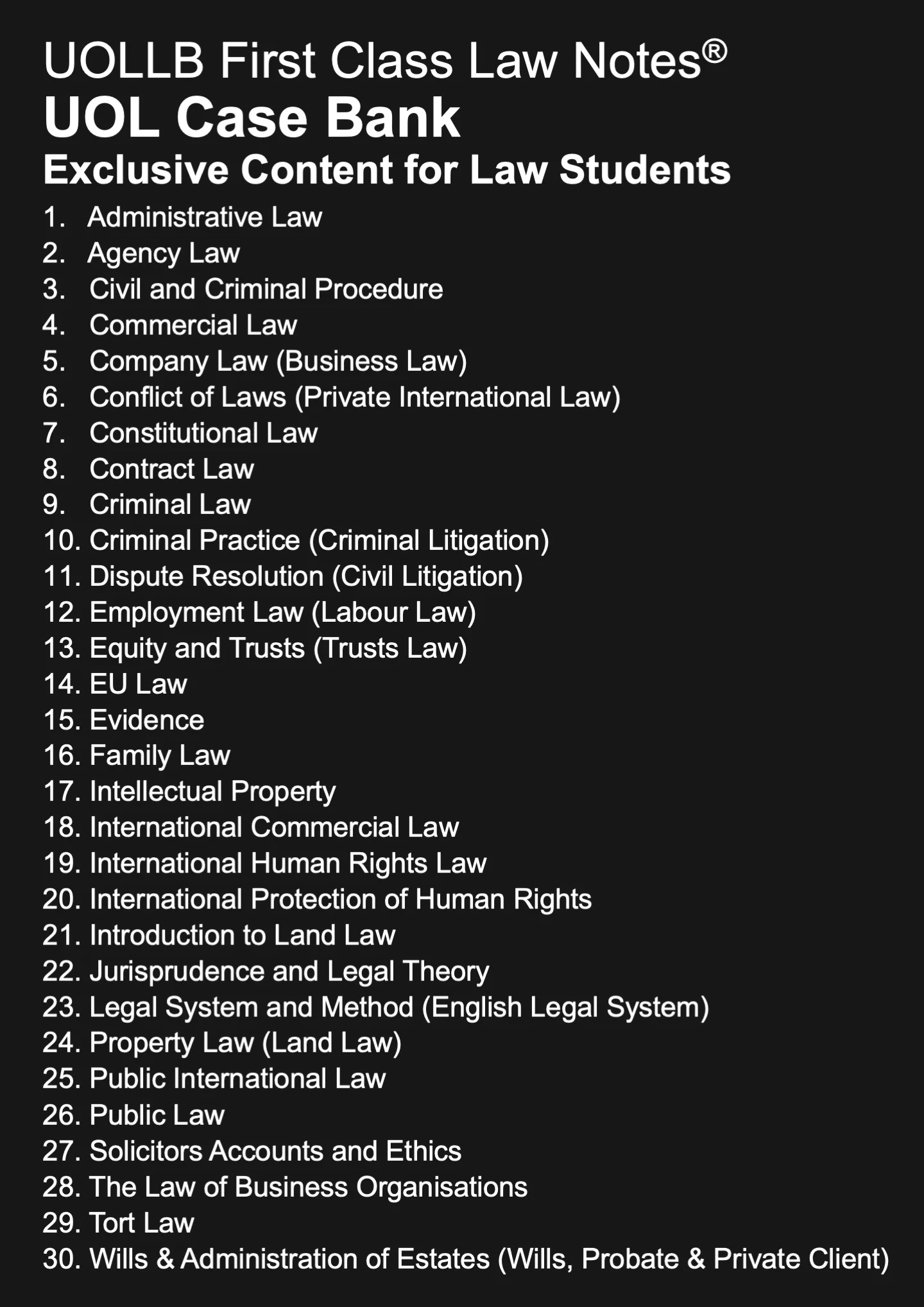What Do Barristers Actually Do?
Share
Embarking on the journey to become a barrister is a pursuit marked by a multifaceted role that demands a deep understanding of the law, effective communication skills, and strategic thinking. Among the myriad responsibilities, barristers play a pivotal role in representing their clients in court, offering legal advice, and navigating the complexities of the legal system. This article explores the various facets of a barrister's role, from taking initial instructions to negotiating settlements, shedding light on the diverse skill set required for success in this esteemed profession.
Take Instruction from Clients
A barrister's role begins with understanding the client's situation. This involves meeting with clients to gather relevant information, listening to their concerns, and extracting essential details to form the basis of legal advice.
Manage a Caseload
Barristers often handle multiple cases simultaneously. Managing a caseload involves prioritising tasks, meeting deadlines, and ensuring that each case is given the attention and focus it requires.
Understand How the Law is Interpreted
Barristers must have a deep understanding of legal principles and how they are interpreted. This involves staying abreast of statutory law, case law, and legal precedents to provide accurate and informed advice to clients.
Undertake Legal Research on Points of Law
Conducting thorough legal research is a fundamental aspect of a barrister's role. This includes delving into legal databases, statutes, and case law to support arguments, provide legal opinions, and strengthen the overall case strategy.
Create Legal Briefs to Counsel
Barristers prepare comprehensive legal briefs for themselves and other legal professionals involved in a case. These briefs outline the facts, legal arguments, and relevant precedents, serving as a guide for effective case presentation.
Write Advice in Opinions and Advise Solicitors
Barristers are often required to provide legal opinions to solicitors. This involves writing clear and concise advice on the legal aspects of a case, helping solicitors make informed decisions on how to proceed.
Draft of Legal Documents
Barristers are skilled in drafting various legal documents, including pleadings, submissions, and settlement agreements. These documents are crucial for framing legal issues, presenting arguments, and formalising agreements.
Prepare Cases for Court
Barristers play a pivotal role in preparing cases for court, including conferencing and preparing arguments. This involves conference meetings with clients and solicitors, preparing legal arguments, and devising a comprehensive strategy for presenting the case in court.
Advise on Merits of the Case
Barristers evaluate the strengths and weaknesses of a case to advise clients on its merits. This assessment is crucial for clients to make informed decisions on whether to proceed with legal action or pursue alternative resolutions.
Advise Clients on Law and Evidence
Providing legal advice to clients includes explaining legal concepts, potential outcomes, and the relevance of evidence to the case. Barristers ensure that clients are well-informed about the legal aspects of their situation.
Represent a Client in Court
Barristers have the primary responsibility for representing clients in court. This involves presenting the client's case, cross-examining witnesses, and arguing legal points to persuade the court in favour of their client.
Present Argument in Court
Presenting a coherent and compelling legal argument is a key skill for barristers. This involves articulating legal points persuasively, referencing relevant legal principles, and adapting arguments based on the evolving dynamics of the case.
Conduct Examination-in-Chief and Cross-Examination
Barristers conduct examinations in chief to elicit evidence from their own witnesses and cross-examinations to challenge the evidence presented by opposing witnesses. This involves strategic questioning to strengthen their case.
Sum Up Reasons
At the conclusion of a trial, barristers provide a closing argument or summing up to explain why the judge should decide in their client's favour. This involves summarising key points, highlighting favourable evidence, and presenting compelling reasons why the judge should decide in their client's favour.
Negotiate Settlements
Barristers often engage in negotiations to reach settlements outside of court. This involves assessing the strengths and weaknesses of a case, negotiating terms with opposing parties, and ensuring that clients achieve favourable outcomes without the need for a trial.
In the intricate world of law, the role of a barrister is a dynamic and multifaceted one. From the initial stages of taking instructions to the nuanced art of negotiating settlements, barristers navigate a complex terrain with skill, diligence, and an unwavering commitment to justice. As advocates for their clients, legal researchers, and interpreters of the law, barristers epitomise the essence of the legal profession, embodying the principles of integrity, advocacy, and a steadfast dedication to upholding the rule of law.
Take Instruction from Clients
A barrister's role begins with understanding the client's situation. This involves meeting with clients to gather relevant information, listening to their concerns, and extracting essential details to form the basis of legal advice.
Manage a Caseload
Barristers often handle multiple cases simultaneously. Managing a caseload involves prioritising tasks, meeting deadlines, and ensuring that each case is given the attention and focus it requires.
Understand How the Law is Interpreted
Barristers must have a deep understanding of legal principles and how they are interpreted. This involves staying abreast of statutory law, case law, and legal precedents to provide accurate and informed advice to clients.
Undertake Legal Research on Points of Law
Conducting thorough legal research is a fundamental aspect of a barrister's role. This includes delving into legal databases, statutes, and case law to support arguments, provide legal opinions, and strengthen the overall case strategy.
Create Legal Briefs to Counsel
Barristers prepare comprehensive legal briefs for themselves and other legal professionals involved in a case. These briefs outline the facts, legal arguments, and relevant precedents, serving as a guide for effective case presentation.
Write Advice in Opinions and Advise Solicitors
Barristers are often required to provide legal opinions to solicitors. This involves writing clear and concise advice on the legal aspects of a case, helping solicitors make informed decisions on how to proceed.
Draft of Legal Documents
Barristers are skilled in drafting various legal documents, including pleadings, submissions, and settlement agreements. These documents are crucial for framing legal issues, presenting arguments, and formalising agreements.
Prepare Cases for Court
Barristers play a pivotal role in preparing cases for court, including conferencing and preparing arguments. This involves conference meetings with clients and solicitors, preparing legal arguments, and devising a comprehensive strategy for presenting the case in court.
Advise on Merits of the Case
Barristers evaluate the strengths and weaknesses of a case to advise clients on its merits. This assessment is crucial for clients to make informed decisions on whether to proceed with legal action or pursue alternative resolutions.
Advise Clients on Law and Evidence
Providing legal advice to clients includes explaining legal concepts, potential outcomes, and the relevance of evidence to the case. Barristers ensure that clients are well-informed about the legal aspects of their situation.
Represent a Client in Court
Barristers have the primary responsibility for representing clients in court. This involves presenting the client's case, cross-examining witnesses, and arguing legal points to persuade the court in favour of their client.
Present Argument in Court
Presenting a coherent and compelling legal argument is a key skill for barristers. This involves articulating legal points persuasively, referencing relevant legal principles, and adapting arguments based on the evolving dynamics of the case.
Conduct Examination-in-Chief and Cross-Examination
Barristers conduct examinations in chief to elicit evidence from their own witnesses and cross-examinations to challenge the evidence presented by opposing witnesses. This involves strategic questioning to strengthen their case.
Sum Up Reasons
At the conclusion of a trial, barristers provide a closing argument or summing up to explain why the judge should decide in their client's favour. This involves summarising key points, highlighting favourable evidence, and presenting compelling reasons why the judge should decide in their client's favour.
Negotiate Settlements
Barristers often engage in negotiations to reach settlements outside of court. This involves assessing the strengths and weaknesses of a case, negotiating terms with opposing parties, and ensuring that clients achieve favourable outcomes without the need for a trial.
In the intricate world of law, the role of a barrister is a dynamic and multifaceted one. From the initial stages of taking instructions to the nuanced art of negotiating settlements, barristers navigate a complex terrain with skill, diligence, and an unwavering commitment to justice. As advocates for their clients, legal researchers, and interpreters of the law, barristers epitomise the essence of the legal profession, embodying the principles of integrity, advocacy, and a steadfast dedication to upholding the rule of law.

























































